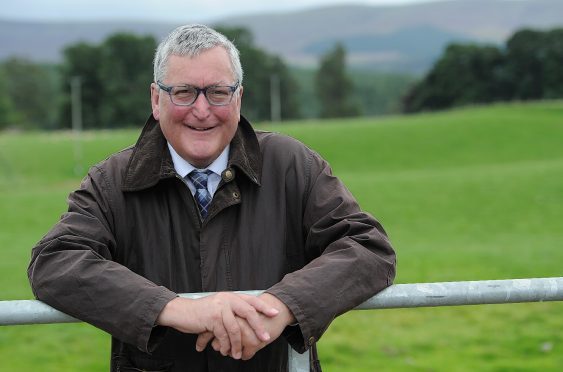Now that the UK Parliament has passed the Brexit bill, we are all keen to know what happens next, especially in rural Scotland. Policy, regulation and crucially, funding are all currently driven by EU-wide approaches, though many of the powers over these areas are in fact devolved to Scotland.
Scottish Ministers have been very clear on their expectations around powers in a post-Brexit situation. Simply, devolved powers like those over farming, should be “repatriated”, that is, they should pass directly from the EU to Scotland. Any powers or matters still reserved to Westminster in this area should also be devolved. That would include funding for farming, food production, fishing and rural development.
We make this case because it would enable Scotland’s Government to protect all of rural Scotland’s interests, to work with rural stakeholders and use all the powers available to us to make good decisions that best meet the needs and interests of our rural and coastal communities, our farm businesses, crofters and smallholders, landowners and tenants.
The Less Favoured Area Support Scheme (LFASS) provides a good example of this. Support for Less Favoured Areas is crucial for Scotland, with 85% of our farming land classed as less favoured, compared to only 15% in England. But the UK Government is yet to guarantee this funding for applications in 2019, let alone beyond.
How certain can we be that a UK-wide policy and funding approach would accommodate an LFASS type scheme, given that England has already discontinued it? Yet, there is no doubt that everyone involved in farming in Scotland would want the Scottish Government to maintain some sort of scheme which provided additional support to fragile and marginal land use and farming.
It looks like UK Ministers will advocate a UK wide policy and funding approach, arguing it would be in everyone’s interests. But how do we know that we can trust them to consider Scotland’s interests equitably when the evidence from their approach to unresolved day-to-day issues is somewhat wanting?
Firstly, the red meat levy. The UK Government has shown no appetite to amend the current legal framework to ensure that all the money contributed by Scotland’s farmers and crofters is used for the direct benefit of the Scottish red meat industry. This is not good enough, our red meat producers are entitled to expect maximum promotion for their contribution.
Secondly, the convergence funding issue. The EU set out to distribute direct payments more equitably among member states. The UK Government received extra funding under the convergence arrangement due to Scotland’s very low rate per hectare but failed to deliver this money to us in full. Scotland’s farmers and crofters have been deprived of funding that is rightfully theirs.
Thirdly, not for farmers but still important, is the issue of the seafish levy. Another example where money raised from Scottish producers is not used to their maximum benefit and where we need action to make genuine changes that give the Scottish industry a fairer share.
I will continue as Rural Economy Secretary to press for faster progress on all these issues and more. And I will continue to meet with UK Ministers to discuss the way ahead – presenting the Scottish case for powers and funding in agriculture and rural development to come to Scotland. I hope I can rely upon the support of everyone in Scottish farming to do so, to advance the best possible case to protect rural Scotland’s interests.
* Fergus Ewing is Cabinet Secretary for Rural Economy and Connectivity
